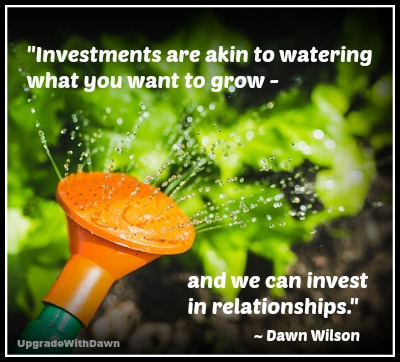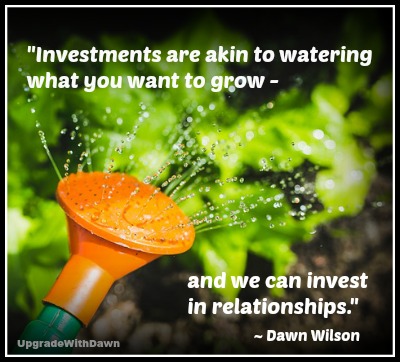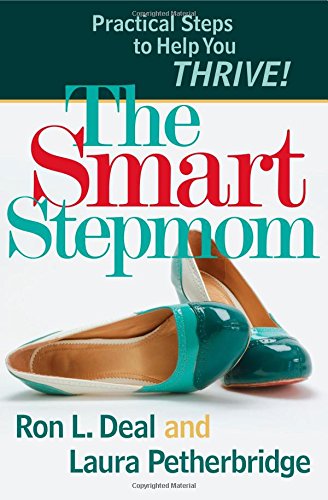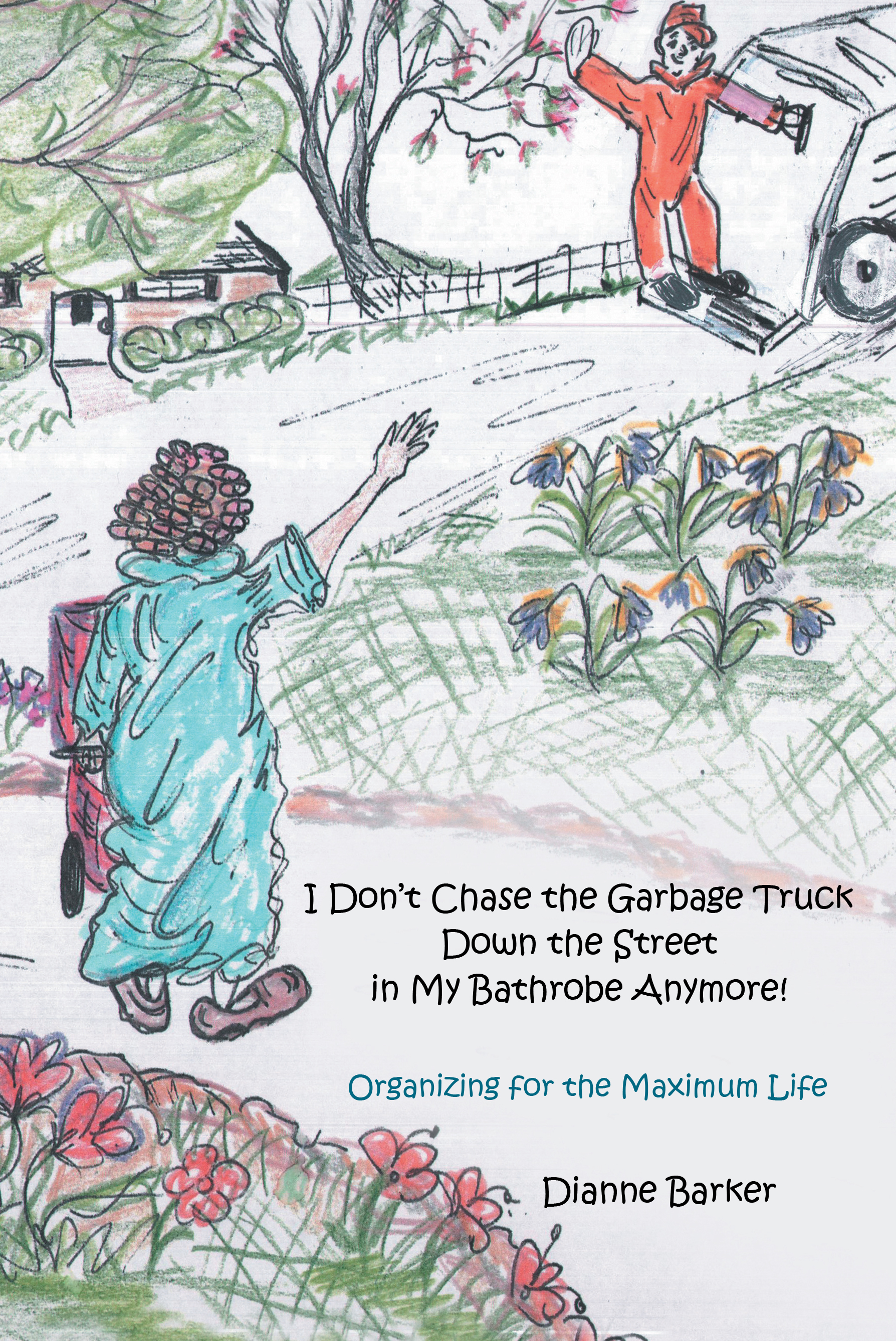Invest in Your Prime Relationships - Part 2
 What are your "Prime Relationships"? In the last UPGRADE post, Dawn asked this question and said we can all invest more in our prime relationships. First we invest in our relationship with the Lord, and then we invest in ourselves (so we will be strong and ready to serve God).
What are your "Prime Relationships"? In the last UPGRADE post, Dawn asked this question and said we can all invest more in our prime relationships. First we invest in our relationship with the Lord, and then we invest in ourselves (so we will be strong and ready to serve God).
There are three other priority relationships, and investments in each of them can make a huge difference in OUR lives - and in THEIRS!
[Note: for a more detailed version of this post with scriptures, see my other blog: Heart Choices Today.]
Investment #3: INVEST in YOUR SPOUSE
If you are married, this is your prime relationship after your relationship with God.
There are so many ways to invest in a spouse. Here are only a few:
1. Communicate Love and Appreciation.
- Learn and apply the "love list." (1 Corinthians 13:4-8).
- Make regular verbal "deposits."
2. Develop a Partnership.
- Don't try to go it alone. You are "heirs of the grace of life" (1 Peter 3:7).
- Become friendly warriors together in the battle against temptation.
- Seek the Lord together for His purposes in your home.
- Ask, "How can I help?"
3. Value Gifts and Skills.
- Discover your Partner's spiritual gifts.
- Notice your partner's skills.
- Help cultivate these gifts.
- Appreciate and value your partner in public.
4. Fulfill Your Role.
- Study the Blueprint. (Ephesians 6:21-33)
- Husbands can protect, provide for, lead with love and wisdom; respond in gentle, loving, kind and respectful ways to honor their wives; express appropriate public praise; and study their wives and help them become the women God purposed them to be.
- Wives can support and encourage his leadership in the home; appreciate their work; manage their home well; show respect; trust God with her highest hopes for her man; and understand and appreciate her husband's God-given sexual needs.
Investment #4: INVEST in YOUR CHILDREN
After your spouse, your children are the next priority investment—not the other way around.
1. Love Them Unconditionally.
- Don't expect perfection. Your kids are going to mess up. They're kids!
- Express your love privately and publicly.
- Help them see the value of "family."
2. Teach Them to Seek the Lord.
- Help them see their need for the Lord.
- Don't give answers too quickly. Challenge them to search the scripture.
- Teach them how to pray.
- Promote a godly legacy.
3. Discipline Wisely.
- Distinguish between immaturity and defiance.
- Discipline quickly and wisely.
- Encourage proper respect.
- Encourage growth and change.
4. Model Good Character.
- Model behavior you want repeated. .
- Reward good behavior.
- Train them to be responsible.
- Help them cultivate godly friendships.
5. Encourage Creative Growth.
- Don't overschedule their lives.
- Encourage their creativity.
- Help them stretch.
- Give them space to pursue their dreams.
Investment #5: INVEST in YOUR FRIENDSHIPS
Good friends don't just happen. Friendship requires intentional investment.
1. Practice Committed Encouragement.
- Be intentional.
- Practice loyalty.
- Be generous.
- Build into their lives. .
2. Listen More and Better.
- Listen to their heart.
- Listen with compassion.
- Ask questions. Seek to understand so you can encourage.
3. Challenge Greater Growth.
- Go deeper, with purpose. If youi've developed the kind of friendship that can bear the weight of accountability, ask deeper questions that challenge your friend to greater growth.
- Come alongside.
- Pray for your friend regularly.
Can you apply any of these strategies to your own prime relationships? Which one would make the biggest difference today?
Note: There was a lot of territory covered in these two posts, and by all means, it does not cover everything that will encourage wise investments in your relationships. I encourage you to discover more as you "read the manual" for all relationships: the Word of God.
Dawn Wilson, founder and President of Heart Choices Today, is a speaker and author, and the  creator of three blogs: Heart Choices Today, LOL with God (with Pam Farrel), and Upgrade with Dawn. She is contracted researcher for Revive Our Hearts. She and her husband Bob have two grown, married sons, three granddaughters and a rascally maltipoo, Roscoe.
creator of three blogs: Heart Choices Today, LOL with God (with Pam Farrel), and Upgrade with Dawn. She is contracted researcher for Revive Our Hearts. She and her husband Bob have two grown, married sons, three granddaughters and a rascally maltipoo, Roscoe.
 Post a Comment → Posted on
Post a Comment → Posted on  Thursday, July 28, 2016 at 7:19AM
Thursday, July 28, 2016 at 7:19AM 












